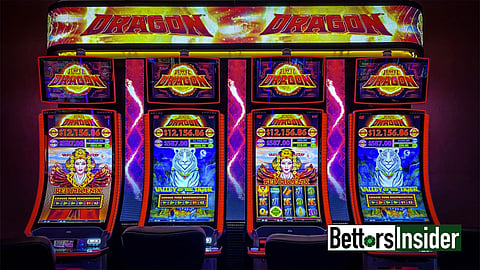

Light & Wonder executives announced on April 2 that the company will voluntarily remove all Jewel of the Dragon slot machines from casino floors in response to expanded litigation from rival manufacturer Aristocrat Leisure.
The decision follows Aristocrat's March 14 amendment to its existing lawsuit, which originally focused on Light & Wonder's Dragon Train game but now encompasses Jewel of the Dragon as well. According to the complaint, Light & Wonder's alleged misappropriation of Aristocrat's trade secrets "extends well beyond" Dragon Train.
"L&W's misappropriation of Aristocrat trade secrets extends well beyond the use of confidential Aristocrat math information to develop Dragon Train," Aristocrat's attorneys stated in the complaint. "Aristocrat's information has been widely disseminated throughout L&W and has been used by L&W employees to develop other games, including, but not limited to, Jewel of the Dragon, Double Dragon, and at least one unreleased game."
Inside Asian Gaming reported that Jewel of the Dragon "shared similarities with Aristocrat's Autumn Moon game, including similarities between the Hold and Spin features, the jackpot displays, and the logos."
During an analyst call, Light & Wonder CEO Matt Wilson emphasized that the removal would have minimal financial impact on the company's operations.
"It's a small game in relation to the universe of games we've created," Wilson said, noting that only about 150 Jewel of the Dragon machines were currently deployed, representing less than one percent of Light & Wonder's installed slot base.
By comparison, Dragon Train—the original focus of Aristocrat's legal action—had a North American installed base of approximately 2,200 devices. CFO Oliver Chow added that Jewel of the Dragon revenues were "well under $10 million," describing the effect of its withdrawal as "immaterial."
Light & Wonder characterized the removal as a proactive step to protect casino operators from disruption.
"We made the decision to voluntarily stop commercializing and offer to replace Jewel of the Dragon to minimize any confusion and potential disruption to our customers," the company stated in a release. "We are seeking to ensure our customers are not affected by the ongoing legal process."
Wilson revealed that Light & Wonder had commissioned an independent third-party audit of its games and found "no evidence of contagion" in products developed after mid-2021, when former Aristocrat designer Emma Charles joined the company. The audit is being expanded to include all hold and spin games released prior to that period, with results expected within four weeks.
The CEO disclosed that the company had discovered certain Aristocrat PAR sheets from 2015 that would have been available to Jewel of the Dragon's development team. PAR sheets, which specify hold percentages, jackpot frequency, and other technical details, are often shared with customers and occasionally end up in competitors' hands.
Wilson characterized the situation as a "legacy issue" rather than an ongoing one, emphasizing that the company's design teams now have clear mandates and enhanced protocols.
"Dragon Train and then to a lesser extent, Jewel of the Dragon, is a very public reminder that there are consequences and that we have to be vigilant when it comes to maintaining the highest standard of governance," Wilson said.
When questioned about Aristocrat's mention of "at least one unreleased game" in its filing, Wilson confirmed that a game in development had also been withdrawn and destroyed "out of an abundance of caution."
Light & Wonder has offered casino customers replacements for Jewel of the Dragon from its existing game library, though Wilson noted it was too early to specify which titles would serve as replacements.
The company has until April 11 to respond to Aristocrat's amended complaint after receiving an extension. Light & Wonder stated that it intends to "vigorously" defend against the allegations.